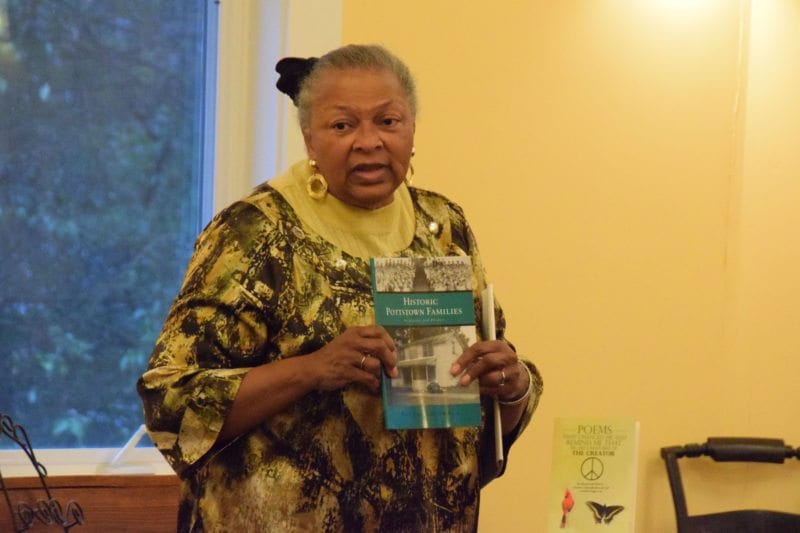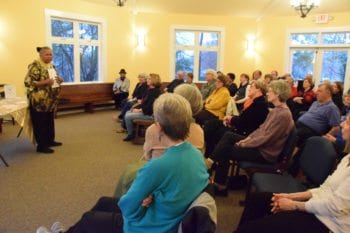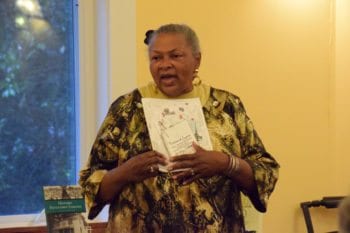DAVIDSON HISTORICAL SOCIETY
An Overview of Race Relations in North Carolina, Charlotte, and Pottstown

Local author Bee Jay Caldwell holds her book Historic Pottstown Families.
Sunday afternoon, the Davidson Historical Society hosted author Bee Jay Caldwell at their January meeting. Caldwell discussed her new book, Historic Little Known, Well-Kept Facts: An Overview of Race Relations in North Carolina, Charlotte, and Pottstown. The meeting was held at the Davidson Friends Meeting house on South Street.

The Davidson Historical Society’s January meeting featured local author Bee Jay Caldwell.
Caldwell was born and raised in the Pottstown area of Huntersville and was educated at the Huntersville Colored Rosenwald school and the Torrence-Lytle school, and she graduated from CPCC in 1970. She has been researching local history for many years and is also the author of the book, Historic Pottstown Families in Stories and Photos.
Caldwell, a long-time Charlotte-Mecklenburg Schools employee, retired from Davidson Elementary School in 1994. Much of her discussion focused on education for the negro community in North Carolina in the early 1900s. She talked about how the land for the Rosenwald School in Huntersville was acquired and the school built, and how it was staffed. Caldwell noted that Esther Stinson Johnson, a Davidson resident for many years, was her teacher, mentor, and the first person to give her a job. She highlighted that the school opened in 1937 and that Johnson started working there in 1938.

Local author Bee Jay Caldwell holds her book Historic Little-Known, Well-Kept Facts: An Overview of Race Relations in North Carolina, Charlotte, and Pottstown
Following her presentation, Caldwell took questions from the audience. Questions for Caldwell included several about the Pottstown community. One of the most interesting stories was about how they originally got water to their homes. After years of having to go to local springs to get water, the community wanted to get running water. Members of Pottstown were able to buy old pipes from Camp Green at the end of World War II. They ran those pipes from uptown to their homes to establish running water.
Other questions were focused on the current status of the Torrence-Lytle school, and what can be done to save the historic building. People who attended event lingered after Caldwell’s presentation to ask her questions and to buy a book or two.


